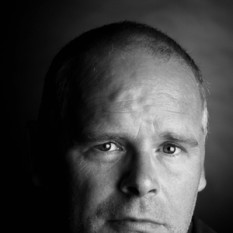Haruna Ito is a sonic and verbal poet who utilizes noise, both aural and literary, in the creation of evocative and unsettling landscapes.
Born in industrial Kawasaki, Japan, Haruna moved to the United States at the age of three and lived there until age thirteen, where she absorbed the popular culture of the time, showing a particular interest in music from a very young age. With her experiences of living as a child of foreigners in America with its various prejudices, and again upon returning to Japan, as a social aberration who neither spoke nor read her native language, themes of dislocation and exile resonated in her early on, and still remain an integral motivation for her work.
During her teenage years in Japan her fury found outlet in a number of bands (for which she wrote, sang, and occasionally damaged the bass guitar), fuelled by the typified anguish of the post-punk, new wave climate of the time. However, upon finishing school and "entering society" as it is called in Japan, haruna soon discovered that culture shock is not a momentary impact that passes, as the term would imply, but is in fact a prolonged situation, a chronic ailment of displacement recurring time after time, whether she was in America, Japan, or elsewhere. Dissatisfied and bored with guitar band music now, she quit playing in order to find something with more personal relevance. A need to get a grasp of the mechanisms and workings of language upon identity and memory (as well as frustration at the alienation she continued to feel from language), led her to become a translator, a pursuit she continues today. Meanwhile, a budding interest in sampling as a new method of (post-self-) expression led her to work with turntablist and acclaimed composer/improviser Otomo Yoshihide. Haruna served as producer and coordinator for his various projects during the mid to late nineties, producing or co-producing four albums by his band Ground-Zero, up to the group's annihilation with the Consume Ground-Zero series.
Following the demise of Ground-Zero, Haruna returned to creating music with the formation of Skist, a duo with sound-creator, percussionist and singer-songwriter Samm Bennett, expatriate of the downtown New York scene. In Skist, Haruna brings singing - and words, and meaning - to the fore, while Samm explores the diversification and development of sonic and rhythmic possibility, noticeably going against the current of ultra-minimalism and its self-imposed rigidity so prevalent in the Japanese underground scene today.
Currently, Haruna utilizes electronic feedback and interference to generate the sonic material for her work, which she then processes and stores as samples for employing as components of compositions and performances. While sharing little with the Japanese avant-garde genre of the same name, she nonetheless terms her work "noise" for the intent and desire behind her sounds and words to incite unease and provoke questioning. .
You can find information through the best music search engine - Muzlan.top 😊All materials on request "Haruna Ito" are available on page Haruna Ito
Yes of course. You can listen tracks on the page Haruna Ito
Yes of course. You can download tracks on the page Haruna Ito
This page is found by queries: Haruna Ito free download, Haruna Ito remix, Haruna Ito song listen, Haruna Ito songs download, Haruna Ito track minus



